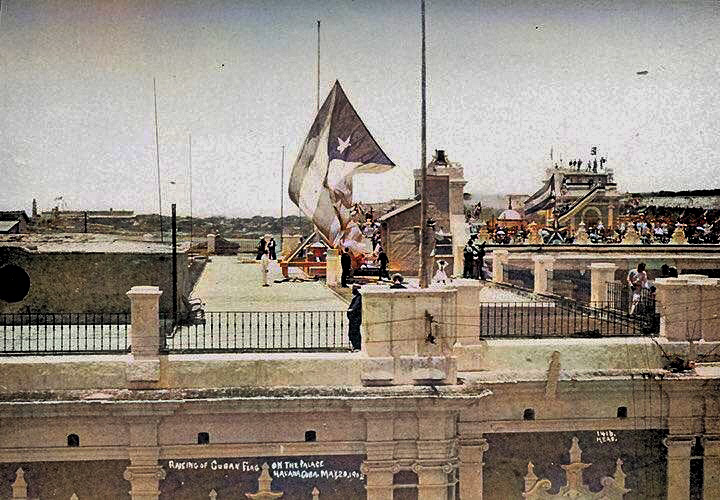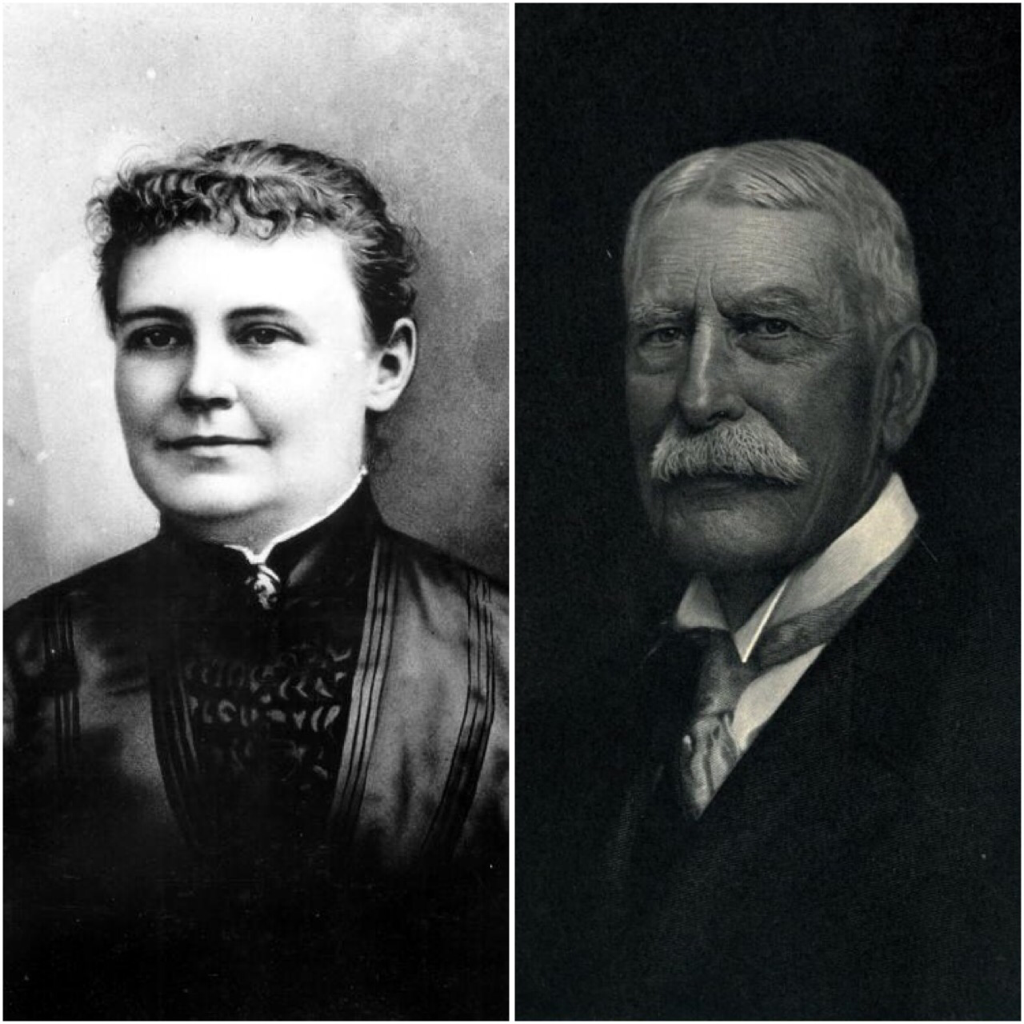|
Sam Burnham, Curator
Back at the beginning on this month, Georgians of a particular age were delighted when iHeart Radio resurrected Atlanta radio station 96 Rock in an all-digital format. From 1974 to 2006, 96 Rock ruled the airwaves across North Georgia. I’ve heard more than one person opine that it was the best radio station in The South. The only competition for that title I ever encountered was Classic Rock 99.5 in Birmingham and WRUF-FM in Gainesville, Florida. Both of these stations were also gobbled up and destroyed by corporate radio acquisition. This is why modern commercial radio stinks. But that’s another story. Back to the good aspects. The nostalgia ran deep on this. They say you don’t know what you’ve got til it’s gone. But in this case, we knew exactly what we had. Homesick Georgians were gathered together at Jacksonville State one night when someone suggested going up to Mt Cheaha and listening to 96 Rock. The signal up there was crystal clear under a starlit sky and a pilgrimage was born. That’s just one of many stories. And a lot of Georgians can tell you similar tales. My take on the reboot is mixed. The music is great even though it’s a bit repetitive at times. Toward the end of the broadcast era, the station had the same problem, only much worse. It is good to hear most of the voices of the old personalities. The iconic “This is 96 Rock” makes me smile every time. I do not like hearing the reminiscing by “The Regular Guys.” The former morning team whose juvenile antics ultimately killed the entire station are pretty much hailed as heroes at times. There’s no reason for Eric von Haessler’s voice to be on 96 Rock. There’s no reason for Larry Wachs to be heard on radio ever again, period. Like many New York transplants in Georgia, these two self-serving miscreants made a lot of money destroying something we all loved. And that’s all I have to say about that. I do hope that the station will cultivate more of a presence in the area. Ultimately what we have right now is a playlist. In its heyday, 96 Rock was where we heard about shows, concerts, album releases, and other music news. The very first time I heard Pink Floyd’s The Division Bell was when 96 Rock played the album in it’s entirety. The 96 Rock stage at Music Midtown was always a must. This wasn’t just a radio station. It was part of the community. Correction, it was part of our communities, plural. So this resurrection is not without negatives, particularly the fact that it is orchestrated by the Walmart of radio, iHeart. It’s a corporate thing and we all get that. But hopefully that floating disembodied heart emoji in the sky will see by that data it’s collecting that we all still love our old station and they’ll put the resources into it to make it what it was, what it could be, what it should be. Welcome back, 96 Rock!
0 Comments
Sam Burnham, Curator
For over six decades the island nation of Cuba has subsisted under the iron fist of a murderous communist regime. This week the people of Cuba took to the streets to protest the horrible conditions they are facing. COVID-19 is decimating the medical system and no vaccine is available. The country is in the depths of its worst economic crisis since the fall of the Soviet Union. And the place was just pummeled by Hurricane Elsa. The people have grown tired of a regime that’s as incompetent as it is diabolical. I got a better understanding of Cuba a couple years ago when I became friends with a man who was born there and immigrated to Miami with his parents when he was young. He told me stories of his childhood in a tobacco growing region of Cuba. He remembered walking the road with his grandfather down to the nearby town to visit a store. He talked of the aroma of his grandfather’s cigars and how he has never smelled anything like it since leaving Cuba. His stories focused on the landscape, the sights, the sounds, the people. You could hear the affection and the connection in his voice. He had that love of place, that forever attachment to the location. And then he told me how his family was allowed to leave with what they could carry on a plane. They were able to gift a few things to family members who remained in Cuba. Everything else, including their home, was seized by the Communist Party. That was the price of being allowed to come to The United States. They stayed with family in Miami while they got their feet under them in their new country. Many of his aunts, uncles, cousins, and family friends had fled communism to build a new life in the United States. He was lucky to have that help with the transition. So many others started with nothing because that’s what they escaped with. My friend still has family on the island. He still has a connection there. But he’s an American now. He has been an American longer than I have. He grew up here, got an education here, built a career here. His wife is an American. So are his kids and now his grandkids. Regardless of what happens there, I’m pretty sure he’ll live out his days here. But I know he’d like to go back for a visit, to see the old place, to see familiar faces, and to track down that elusive aroma of his late grandfather’s cigars. The people who have fled the regime over the years are certainly looking at this situation with a guarded, perhaps even cynical, optimism. They’ve seen a lot of uprisings come and go. They want freedom for the people they left behind. They want better access to their loved ones there. They want what’s best for their people. Perhaps this will be the time that the Cuban people finally will take no more. Hopefully the protests that filled the streets of six or seven cities will grow into a revolution that topples the crime syndicate established by monsters like the Castros and Che. Perhaps we stand at the dawn of a new era -a decentralized Cuba where people are free to live and dream. Hopefully the people of Cuba will be successful this time. It’s a time for Western nations to act wisely and give support to the insurgency. They need to consider the errors of the past and find new ways to support the people. Don’t try to take over, don’t overreact. But don’t sit idly while another opportunity evaporates. It is past time for change. Cuba can have a bright future. Tourism, agriculture, and a revival of one of the world’s great cultures could mean peace and prosperity for an oppressed population. Let the people go. Let them plot their course. It’s time. #CubaLibre Sam Burnham, Curator
It’s a familiar story. Henry Flagler, the co-founder of Standard Oil and railroad tycoon was running his line into Florida. The state was still largely a forested and swampy wilderness. While cracker settlers had tamed places, the Seminole people had disappeared into the vast inner places and evaded the Federal government’s attempts to relocate them. Alligators outnumbered people. In the official 1890 census, Florida reported 391, 422 people. In 1894 and 1895, hard freezes hit and the ideas of the state becoming a tourist destination were questioned. Flagler was content to end his rail line at Palm Beach. Further down the coast an unincorporated Miami was in its infancy. A woman named Julia Tuttle saw an opportunity. She sent Flagler fresh produce, specifically citrus fruits and fragrant orange blossoms to show him that her home was unaffected by the freeze. With the pleasant climate and gifts of real estate, Flagler was convinced to not only run his railroad south to Miami but also to build his Royal Palm Hotel there. The rest is history. The area around Biscayne Bay exploded with tourism, commercial, and residential development. South Florida had a massive economic engine that produced growth and progress. But we know what they say about progress. If we view the story of Julia Tuttle and Henry Flagler as a chapter of Patrick D. Smith’s A Land Remembered, we can see the whole picture of progress in The Sunshine State. The progress didn’t stop in Miami. Walt Disney tried to isolate his parks in the Florida swamps, far from development. But I-4 ripped its way across the state, scattering souvenir shops and chain restaurants in its wake. Traffic choked the roads as fast as they could be built. I even found myself in a Walmart built over a former orange grove unable to find even one tangerine that wasn’t grown in California. Orange blossoms, the state flower, are now rare in the county named for them. The alligator is on the rebound after approaching extinction, and the Seminoles are either assimilated or stored away in some corner of the state. This is how the general thought came about that Florida isn’t a Southern state. Now, anyone who has been to Williston, Green Cove Springs, Yulee, Vernon, or Yeehaw Junction understands that Florida is still very much a Southern state, if you know where to look. But the coastlines and the I-4 corridor are about as Southern as New Jersey. Across the region, the survival of Southern culture, and of the land we love, will require a balancing act. Economic development is necessary for our provision. But how do we find a living in this place without destroying it? How do we meet our needs without destroying our home? Julia Tuttle unleashed a founder of Standard Oil on Biscayne Bay. People in Camden County are building a spaceport. A mining company is looking to dig along the Okefenokee. A capsized vessel still litters the Georgia coast. Metro Atlanta, like The Blob, continues to devour North Georgia. Are the jobs gained, the products made available, and what money really does come in justify the changes that are made? If you think it can’t happen in Alabama, Mississippi, Louisiana, or South Carolina, just hide and watch. The challenge we face is how we think about progress. Not all economic development is improvement. And the economy shouldn’t be our only motivation. We should consider historic preservation, natural conservation, cultural resiliency, and the ability of families to make a real life. The sort of development we’ve seen in North Georgia as well as what happened in South Florida brought jobs but it also brought higher housing costs. If a new company brings in workers to take the jobs they create we suffer culturally while reaping little economic benefit. Long time residents struggle to stay afloat as the price of everything rises. 130 years later, Florida’s population is estimated at 25,538,127. The landscape, the economy, and the culture are all very different. Over 130 years, change is to be expected. Progress suggests improvement. Is Florida better off because of the development? Looking at the situation holistically, I can’t say that it is. I firmly believe, as Sol MacIvey did in A Land Remembered, that much of the state has been ruined. The lesson must be learned. We have to face progress with wisdom. When government and developers stand shoulder to shoulder to tell us how many jobs a project will bring, we need to ask how many of those jobs will go to locals? How much will traffic increase? What is the ecological impact? What do we lose compared to what we gain? Ask the unpopular questions. Demand the honest answers. Protect this land and culture with vigilance. |
Sam B.Historian, self-proclaimed gentleman, agrarian-at-heart, & curator extraordinaire Social MediaCategories
All
Archives
November 2022
|







 RSS Feed
RSS Feed
